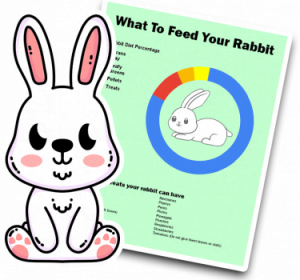
Pasteurellosis is a disease which affects lots of living creatures, including rabbits. Pasteurellosis is a bacterial disease that can cause infections in the eyes, ears and nose.
Rabbits immune systems have been known to fight against pasteurellosis, however, this doesn’t mean you shouldn’t be cautious.
There’s only a few things you can do to prevent pasteurellosis, the main prevention method is to simply avoid contact with infected rabbits and environments which were exposed to the disease.
Alternatively, you will simply need to avoid stressful conditions (Dirty environment etc). Consistantly cleaning toilets & feeding areas would definitely help with this.
Your first point of action is to contact your local vet for an emergency appointment. If your rabbit is showing symptoms, it’s likely that their immune system requires some assistance fighting this off.
If left untreated, it can create toxins which can cause permanent damage to your rabbit.

By entering your email address you agree to receive emails from Cottontailclub. We'll respect your privacy and you can unsubscribe at any time.